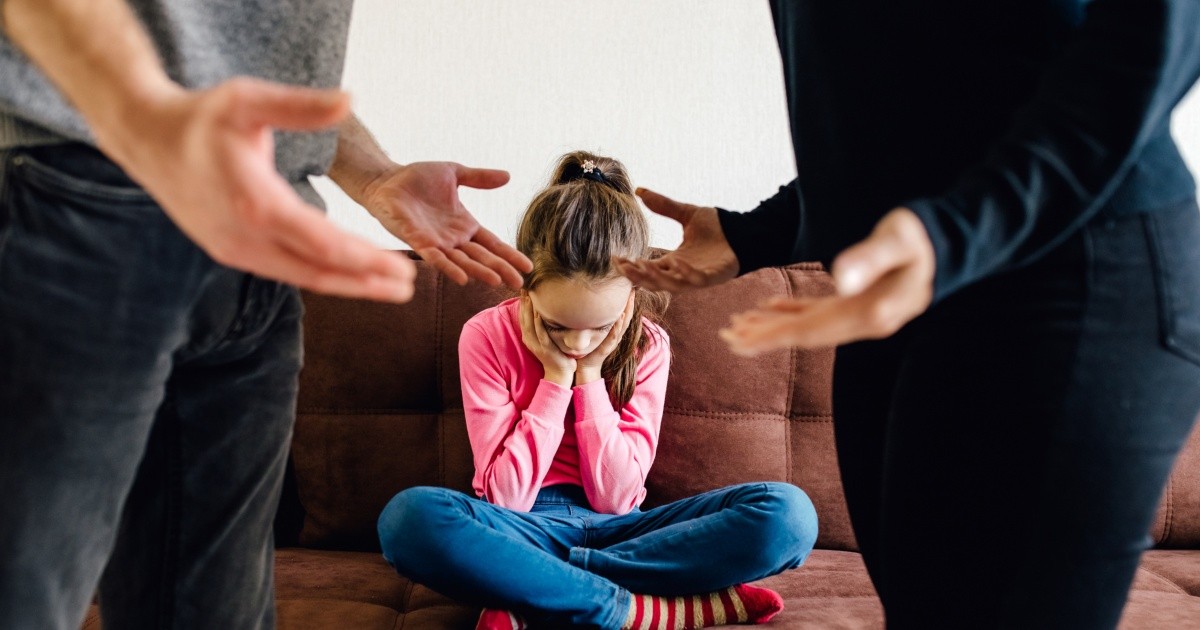Discrepancies and conflicts are inherent to human relationships, in all contexts, which is why they are common in the family environment.
In the collective imagination, the concept of conflict has negative connotations; however, disagreeing and having different opinions on any issue can be an opportunity to learn or improve people or situations and, therefore, have desirable consequences and be constructive and enriching.
In order for it to be so, the lack of agreement cannot be turned into confrontation, disputes and discussions. When opinions are transmitted in an aggressive, violent or disrespectful way, they stop being positive processes and become harmful and destructive.
a destructive impact
In the case of couples with children, especially if they are minors, the adverse effects extend to them, and are more harmful than to the parents. there is a vast literature about how parental confrontation and conflict have a destructive impact on sons and daughters, from the smallest to adolescents.
Regardless of whether the parents live together or are separated, the scientific evidence shows that parental conflict is a factor that strongly affects the physical and psychological health of children. This reality has led to the fact that the constant exposure of children to parental conflict is considered, by professionals and scientists from different fields (mainly psychiatry, psychology, pediatrics and education), a constitutive process of mistreatment of minors. old.
Reactive mechanisms in conflict management
Parents have not always been socialized to resolve conflicts and disagreements amicably. On the contrary, the acquired learning causes them to activate reaction, defense and attack mechanisms, especially in the face of stressful events (such as loss of employment, lack of economic resources, presence of serious illnesses in a family member, problematic adolescence of any child, breakup of the couple, etc.).
Unfortunately, very common experiences lead to more conflictive dynamics in the parents, a greater number of discussions and confrontations; reducing their ability to maintain positive and healthy affective relationships between themselves and with their children, as well as positive co-parenting. This aggravates and reinforces stress and conflict in the family.
Bad example and accumulated stress
The couple’s arguments with a lack of emotional control exacerbate the confrontation and make the problems grow in number and intensity. Inevitably, they end up damaging the family functioning and the well-being of the children, to a greater degree when they are carried out in their presence.
Arguments between parents cause stress in children, with its well-known harmful consequences for their system and personal functioning, affecting the physiological, cognitive and behavioral systems.
Additionally, it gives them a lack of confidence in the family as a guarantor of their support and support at all levels, especially psychological. The latter puts preteens and teens in particular at risk.
A decade ago the American Academy of Pediatrics warned that the absence of adequate family relationships predicts maladjustments and maladaptive health patterns in children and adolescents.
In a generic way, for children the conflict entails internalizing and externalizing symptoms. Although they vary depending on age and gender, among the internalizing symptoms, those of an anxious and depressive nature, somatic symptoms, anguish and fear stand out. Regarding externalizing symptoms, tantrums, lack of respect, regressive behaviors, disruptive, violent and criminal behaviors and substance use are noted.
Emotional control is learned
Discussions between parents, when carried out with emotional control, kindness, understanding, granting dignity and legitimacy, and the strictest respect for the opinions of the other, do not affect the children, and can even increase their feeling of security and well-being. in the family. At the same time, they can be a vicarious apprenticeship of great relevance for their development and socio-emotional performance.
In this sense, within the basic needs of childhood and adolescence it is emphasized that there are assertive communication styles in families, that the respectful exchange of information and the non-violent approach to conflicts are favored.
It is a right of the sons and daughters that this is respected and in this way they can live in a context that promotes the proper development of their personality, their well-being and happiness. Consequently, the responsible exercise of parenthood requires ensuring that children enjoy a positive coexistence in your homewhich indisputably demands from their parents a positive management and resolution of conflicts and the absence of inappropriate discussions.
Parents should be aware of how their arguments can harm their children to avoid exposing them to them and, in the case of not having the necessary skills to manage how disputes are resolved positively, seek support to acquire them.
Francisca Farina RiveraProfessor of Basic Psychology and Legal Psychology of Minors, University of Vigo
This article was originally published on The Conversation. read the original.

















